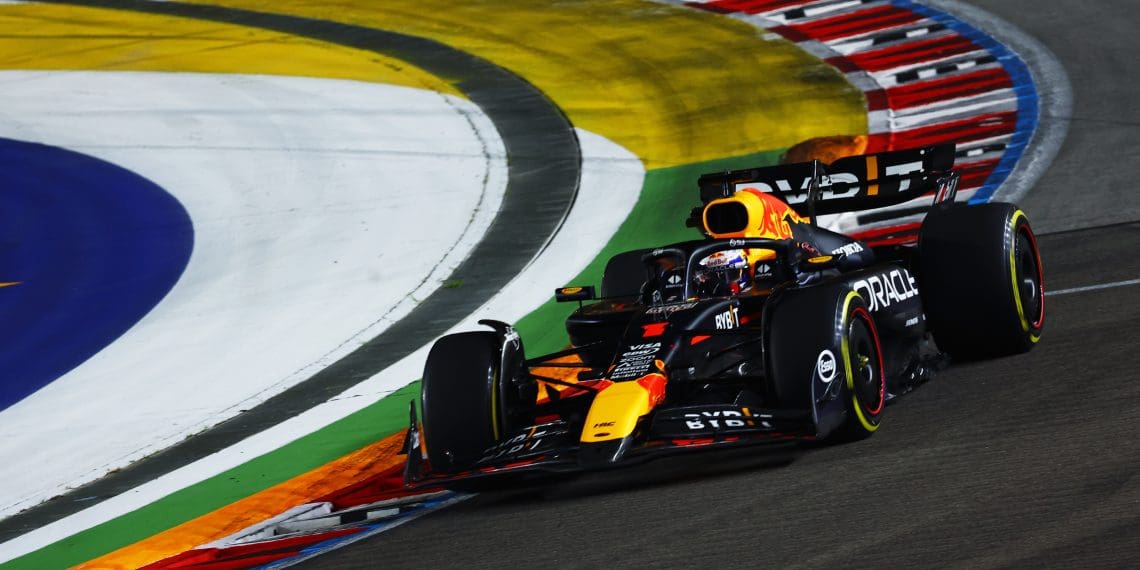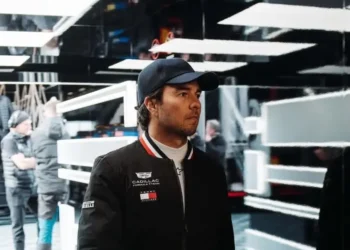Red Bull Racing, once the dominant force in Formula 1 during the ground-effect era, is facing an uncertain future if it cannot resolve the critical issues plaguing its RB20 car. The reigning world champions have seen a dramatic shift in performance this season, with Max Verstappen’s title defense under serious threat from McLaren’s Lando Norris with only six races remaining.
From Early Dominance to a Mid-Season Slump
Verstappen began the season in formidable fashion, winning seven of the first ten races. However, the Dutch driver has struggled since, failing to secure a win in the last eight races—a drought not seen in years. The sudden decline in Red Bull’s performance has been attributed to the RB20’s balance issues, which the team from Milton Keynes has acknowledged as a significant problem.
Red Bull’s success in recent seasons, including Verstappen’s record-breaking 2023 campaign, was built on their ability to out-develop the competition under the ground-effect regulations introduced in 2022. However, cracks in their development approach have started to show, and the RB20’s current struggles could have long-term implications for the team.
Identifying the Problem: Missteps in Development
Team Principal Christian Horner recently admitted that the first major misstep for Red Bull occurred with the upgrade package introduced at the 2023 Spanish Grand Prix. Despite Verstappen’s ability to outperform the car’s limitations throughout last season, the issues went unresolved for over a year. Now, these unresolved balance issues have caught up with the team, impacting their ability to compete at the highest level.
The team’s current predicament has forced them to confront the reality of potentially losing the Constructors’ Championship to McLaren. Fixing the RB20 is not just crucial for Verstappen’s 2024 title bid, but also for Red Bull’s future campaigns. If these issues are not addressed by the end of this season, Red Bull could start 2025 on the back foot, further complicating their position ahead of the major rule changes set for 2026.
Implications for the Team’s Future and Verstappen’s Loyalty
The ongoing struggles with the RB20 could have broader ramifications beyond this season. Prolonged difficulties could erode team morale and confidence, setting the team up for a challenging transition into the 2026 regulations. The stakes are particularly high for Verstappen, who has been vocal about his dissatisfaction when the car does not perform to his expectations.
There is even a possibility that Verstappen might consider leaving Red Bull for another top team like Mercedes if he loses faith in the team’s ability to deliver a competitive car. Such a departure would be a massive blow to Red Bull, given Verstappen’s integral role in their recent success. The final races of the 2024 season are thus critical, not just for the immediate championship battle, but also for the team’s longer-term prospects.
Red Bull’s Urgent Need for Solutions
Time is running out for Red Bull to rectify the RB20’s flaws and salvage their season. The team’s engineers and strategists are under immense pressure to find solutions that can restore the car’s competitiveness and put Verstappen back in the fight for his fourth world championship. The stakes could not be higher, as the outcome of these final rounds will shape not only this season but the future trajectory of the team.
Red Bull’s fans and the F1 community will be closely watching to see if the team can overcome this challenging period. For Verstappen, securing his fourth title amid these struggles would be a testament to his driving talent and resilience. However, without significant improvements, Red Bull’s dominant era could be at risk of slipping away, leaving the team at a crossroads as they look ahead to 2025 and beyond.










